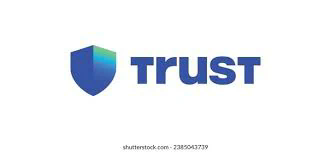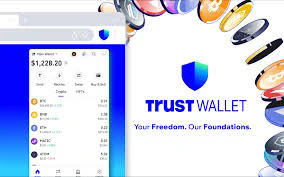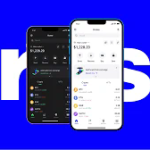# Does Trust Wallet Need Verification?
## Introduction to Trust Wallet
Trust Wallet is a decentralized cryptocurrency wallet that allows users to store various digital assets securely on their mobile devices. Launched in 2017 and subsequently acquired by Binance in 2018, Trust Wallet provides users with a broad set of features, including support for numerous cryptocurrencies, decentralized finance (DeFi) applications, and non-fungible tokens (NFTs). As digital currencies become increasingly popular, understanding the verification process—if any—required by Trust Wallet is essential for its users.
## Understanding Decentralized Wallets
Decentralized wallets, like Trust Wallet, differ from traditional wallets in several significant ways. They empower users with full control over their private keys, meaning that only the wallet owner can access and manage their funds. This model contrasts with centralized exchanges where users have to trust the exchange to safeguard their private keys and cryptocurrency holdings. In the case of Trust Wallet, transactions are conducted directly on the blockchain, enhancing security and privacy.
## The Verification Process: Overview
One of the most frequent questions among potential Trust Wallet users is regarding the need for verification. Unlike centralized exchanges or platforms that require users to undergo Know Your Customer (KYC) verification, Trust Wallet operates on a decentralized model that typically does not need such measures. Users can download the app, create a wallet, and begin trading cryptocurrencies without providing personal information or undergoing verification.

## User Privacy and Anonymity
A significant appeal of Trust Wallet lies in its emphasis on user privacy. Since it doesn’t require verification, users can enjoy a level of anonymity that isn’t typically available on centralized platforms. This model aligns with the foundational principles of cryptocurrency, where privacy and decentralization are vital. However, while Trust Wallet does not require personal verification, users should remain aware that blockchain is inherently transparent; transactions are recorded on the blockchain and can potentially be traced back to wallet addresses.

## Risks Associated with Anonymity
While the lack of verification enhances user privacy, it also presents certain risks. One such risk is related to security and illegitimate activities. Anonymity may invite users with ill intentions, such as money laundering, to use platforms like Trust Wallet without oversight. Consequently, users must remain vigilant regarding their transactions and ensure that they do not engage in any illegal activities that might implicate them in fraud or other illicit actions.
## Wallet Security Measures
Although Trust Wallet does not employ traditional verification methods, it does offer several security features to safeguard users’ assets. These include biometric or PIN protection for accessing the app, seed phrase recovery options, and in-built security measures for private keys. Users are also encouraged to enable security features on their devices, such as smartphone encryption and antivirus software, to improve overall protection.
## User Experience: Ease of Access
The absence of a verification process contributes to the user-friendly experience of Trust Wallet. New users can quickly set up their wallets and begin trading without the daunting paperwork or time-consuming verification processes demanded by many centralized platforms. This ease of access has attracted a diverse user base, from seasoned cryptocurrency investors to novices seeking a straightforward method of managing their digital assets.
## Integrating Wallets with DeFi and DApps
Trust Wallet’s decentralized nature allows seamless integration with decentralized finance (DeFi) platforms and decentralized applications (DApps). Since no verification is required to interact with these resources, users can freely lend, borrow, or stake assets directly from their wallets. This feature is revolutionary as it empowers users to participate in financial services previously restricted to traditional banking ecosystem participants.
## Regulatory Considerations
Despite the decentralized design of Trust Wallet, regulatory scrutiny around cryptocurrencies is growing. Governments in various regions are instituting stricter regulations that may eventually affect decentralized platforms, especially concerning anti-money laundering (AML) and KYC laws. While Trust Wallet may not currently require verification, users should stay informed about potential changes that might compel the wallet to adapt its operations in the future.
## Exploring Alternative Wallets: A Comparative Analysis
To further understand the verification aspect, one can compare Trust Wallet with other wallets in the market. Centralized wallets, such as those provided by exchanges like Coinbase or Binance, mandate verification processes. On the other hand, wallets like Electrum or MyEtherWallet offer varying degrees of decentralization and verification requirements.
1. **Centralized Wallets:** Users must undergo identity verification and comply with KYC protocols, trading or withdrawing limits may apply.
2. **Semi-Decentralized Wallets:** Some wallets may require limited verification but still allow greater anonymity compared to fully centralized exchanges.
3. **Fully Decentralized Wallets:** Trust Wallet falls into this category, allowing users complete control without verification, thus fostering both freedom and responsibility.
Each type of wallet carries its risks and benefits, catering to users with varying needs. Those who prioritize privacy and autonomy may prefer Trust Wallet, while those seeking more support and security may favor centralized options.
## How to Use Trust Wallet Without Verification
Setting up Trust Wallet is straightforward, allowing users to embark on their cryptocurrency journey with minimal barriers. The following steps outline how to use Trust Wallet without the need for any verification:
1. **Download the Application:** Users can download the Trust Wallet mobile app from the official website or authorized app stores.
2. **Create a New Wallet:** Upon initial launch, users are prompted to either create a new wallet or import an existing one using a recovery phrase.
3. **Secure the Wallet:** Users are encouraged to create a strong passcode and make a backup of the recovery phrase, which is essential for recovering the wallet in case of device loss.
4. **Start Trading:** Once the wallet is set up, users can access various tokens, DApps, and DeFi platforms without the need for further identification or verification.
## The Impact of Non-Verifiable Assets
One intriguing aspect of decentralized wallets like Trust Wallet is their ability to hold non-verifiable assets, such as NFTs. Since NFTs can be bought and traded without a centralized authority, Trust Wallet enables users to manage an array of NFTs without entering into a complicated verification process. This characteristic supports the proliferation of digital ownership and creativity within the blockchain space.
## Community and Support
Trust Wallet boasts a large and active community of users and developers who contribute to the platform’s evolution. The community’s collaborative efforts often lead to enhancements, bug fixes, and new feature rollouts, providing valuable insights and support to users who might have questions or issues.
## Conclusion: Weighing the Pros and Cons
In conclusion, Trust Wallet’s lack of verification aligns with its decentralized nature, allowing users to manage their cryptocurrencies with privacy and autonomy. While this accessibility is appealing, it also requires users to exercise diligence and accountability regarding their transactions. With the ever-evolving landscape of cryptocurrency regulation, users must stay informed about potential changes that may influence the operational model of decentralized platforms like Trust Wallet.
The decision to use Trust Wallet versus other wallets ultimately depends on individual preferences concerning privacy, security, and ease of use. As the cryptocurrency ecosystem continues to mature, users will need to adapt and choose tools that best serve their needs in this dynamic environment. Trust Wallet, with its strong security measures and user-friendly design, offers a compelling option for those seeking a decentralized and verification-free experience in the world of cryptocurrency.

